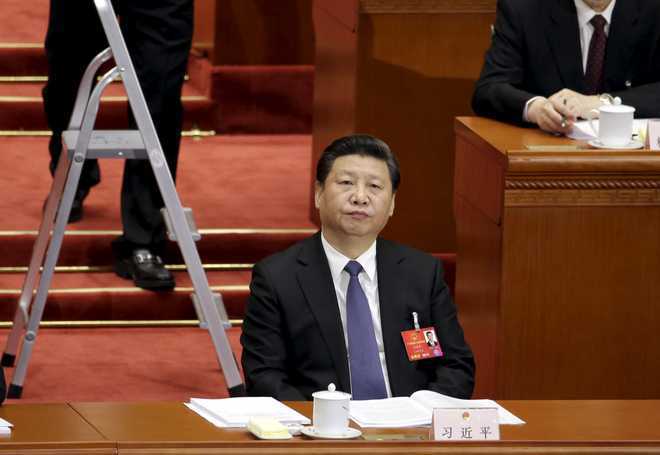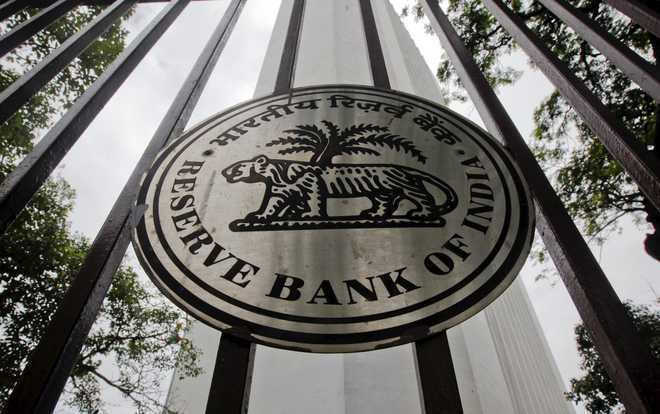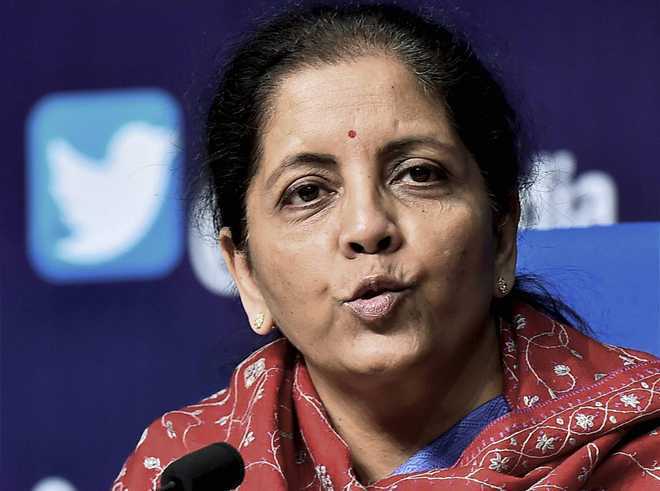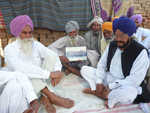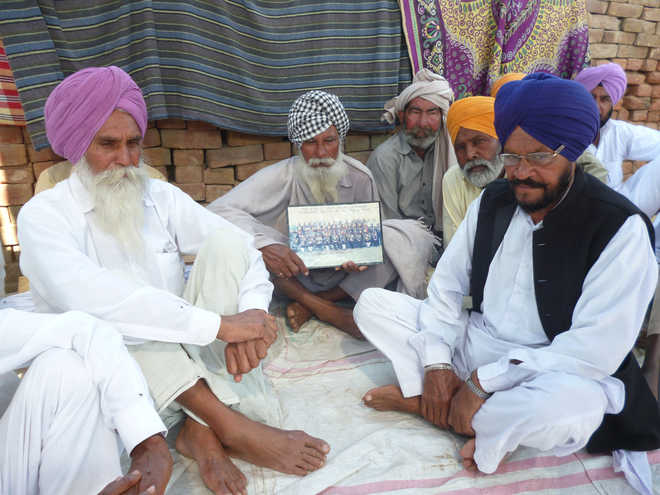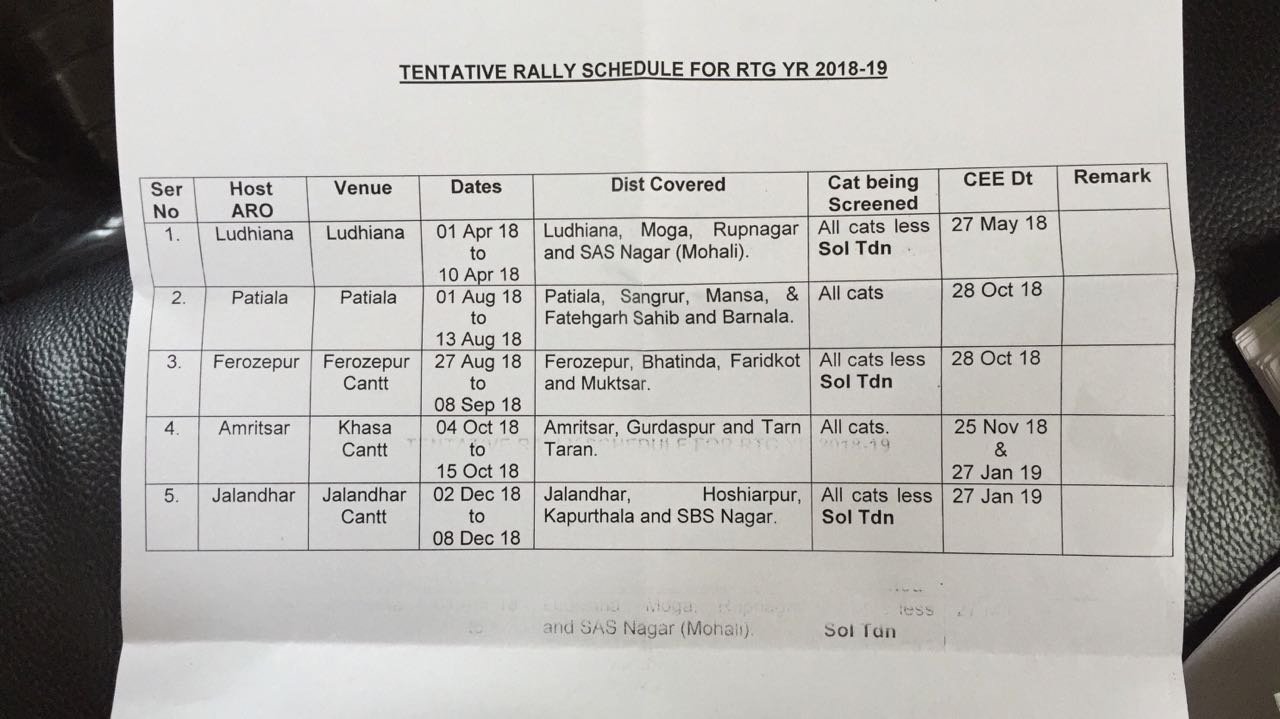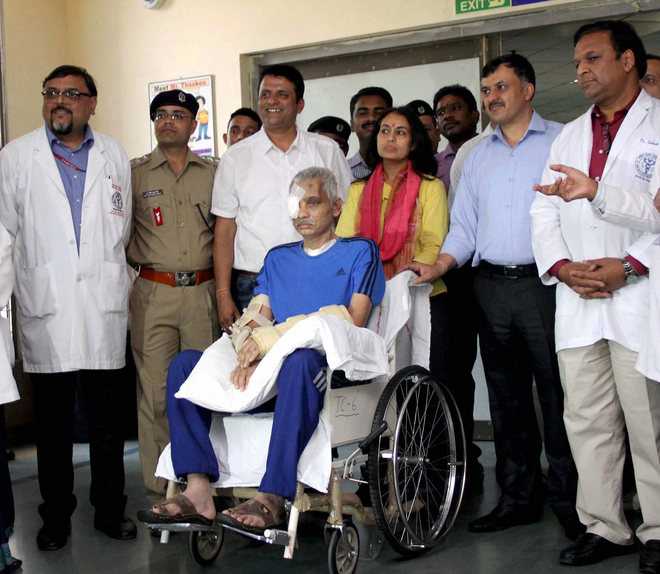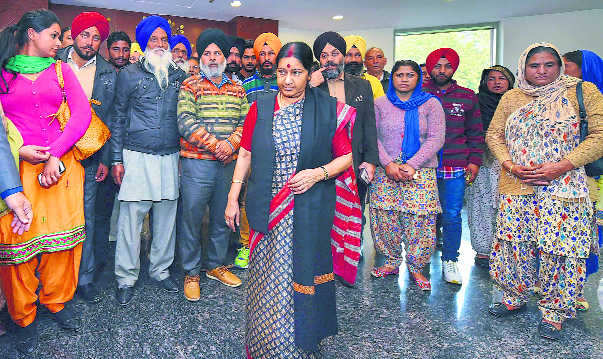
KC Singh
Human life has transient value in huge nations like India as news gets swept away by new and juicier distractions. The death of 39 missing Indians, mostly from Punjab, raises questions about Indian power and effectiveness in rescuing its citizens caught in civil strife abroad. India has had successes in the past, but the Mosul tragedy needs investigation. Great powers fight for every citizen’s life and security. The US has been known to even negotiate despite stated policy of non-negotiation with abductors. Even Israel, with a similar stance, has compromised for the release of captured soldiers. The Mosul tragedy resulted from the sudden collapse of Iraqi forces in northern and western Iraq as the IS captured many cities, including Mosul, the second largest Iraqi city. It was known that the Shia-led Iraqi regime had been alienating Sunnis and letting this sectarian approach degrade the US trained Iraqi military and its command and control structure. President Barack Obama, unwilling to re-enter the Iraqi morass, watched from the sidelines as the security conditions deteriorated. But even the US could not anticipate its suddenness or extent. The geographical reason for this is that Iraqi cities are on the two great rivers of Tigris and Euphrates. The former runs south from the Turkish border and on it lies major northern cities like Mosul and Tikrit, the hometown of Saddam Hussein. It flows through the Turcoman and Sunni parts of Iraqi population. The Euphrates comes from the west, from Syria. To the west of Mosul is sparsely populated land providing little density to resist a quick assault like that of the IS. Undoubtedly, the local Sunni population initially welcomed rather than resisted the IS ingress. Should India have foreseen this and urged its workers to move south or blocked them well before the tragedy unfolded in the region? In hindsight, the answer is in the affirmative, but in real time, it is impossible to monitor the flow of workers, who may initially go to one Gulf nation and then move where jobs beckon. It is also difficult to dissuade persons whose families have borrowed huge sums to send them abroad, chasing dreams of prosperity, to abandon jobs, particularly when their employers flee and wages remain unpaid. The Ministry of External Affairs needs to rejig its strategy and have its political divisions coordinate better with those monitoring consular issues to anticipate flashpoints well before crises. This century has seen more intra-state conflict than regular wars. Mosul abductions occurred in June 2014. Interestingly, 46 nurses, who were in Tikrit, south of Mosul, were caught in the same upsurge. It is unclear how they were extracted, but not the 39 held in Mosul. The argument that they were detained by a group to which Iraqis or Indians had access does not square with the route adopted for their release. They were taken north to Mosul for handing over near Kurdish-controlled Erbil, thus transiting the IS-controlled territory. Similarly, Turkish diplomats and truck drivers were released by Turks. Even Bangladeshi workers were released once their religion was known. Did ransom and influential Malayali Gulf contacts play a role in the release of nurses? Contrariwise, did the Akali-BJP government keep dilly-dallying while Delhi approached West Asian and Gulf capitals for help, rather than devising a direct strategy? The cold-blooded killing of 39 Indians — the 40th Masih having escaped and returned to India — needs thorough investigation to ensure no Indian Government ever dissimulates to conceal its helplessness. Knowing that the IS was ruthless in eliminating non-Muslims in its custody, particularly if they were not Christians, time was of the essence. Each day passed was a day too many to rescue the abductees. Some self-congratulatory stories appeared about the nurses getting released due to the efforts of an adviser in PM Narendra Modi’s office using his intelligence assets in West Asia. It seems those assets had less interest in poor workers from Punjab. The only players with some leverage with the IS at that stage were Turkey, Qatar and, to a lesser extent, Saudi Arabia and the UAE. Turkey was first going to get its own diplomats and citizens released before running errands for others, particularly India with which it had functional, but not outstanding relations. India must have asked the others. But the primary responsibility would have fallen on the Indian mission in Iraq as it needed to invoke relationships it should have built outside the Baghdad bureaucracy with non-Shia sources in northern Iraq. Some senior military advisers with the IS were former Saddam military brass. Did India bother to revive links to them or rested on its oars in Baghdad? That is the kind of parallel intelligence network that all nations maintain. Excessive dependence on the US or its surrogates in Baghdad, or other capitals, leads to the very geostrategic swamp where Obama and the Gulf nations found themselves once the Islamic caliphate was announced by Baghdadi in Mosul. The Modi government having failed to get any link to the IS that was reliable set about selling the “they are alive” story. Masih the escapee was dubbed unreliable and as it turns out now, when the bodies of the unfortunate have been found and identified, was speaking truth all along. External Affairs Minister Sushma Swaraj altered the message as Mosul’s liberation approached and there was still no sign of the boys. “It is a sin,” she proclaimed to declare someone dead without proof. What do we call raising hopes of families unrealistically to only dash them after four years of assurances? A modified story was floated post-Mosul liberation that abductees are probably in Badush prison. An Indian television channel, within hours, showed the prison reduced to dust. The US, with its eyes in the skies and electronic intel, should have been able to provide answers about the missing Indians long before Mosul was reduced to rubble. These questions need answering and unless lessons are learnt, the deaths of these poor souls would have been in vain. At the very least, the government should compensate the families for their pain and material loss. The writer is a former Secretary, Ministry of External Affairs














